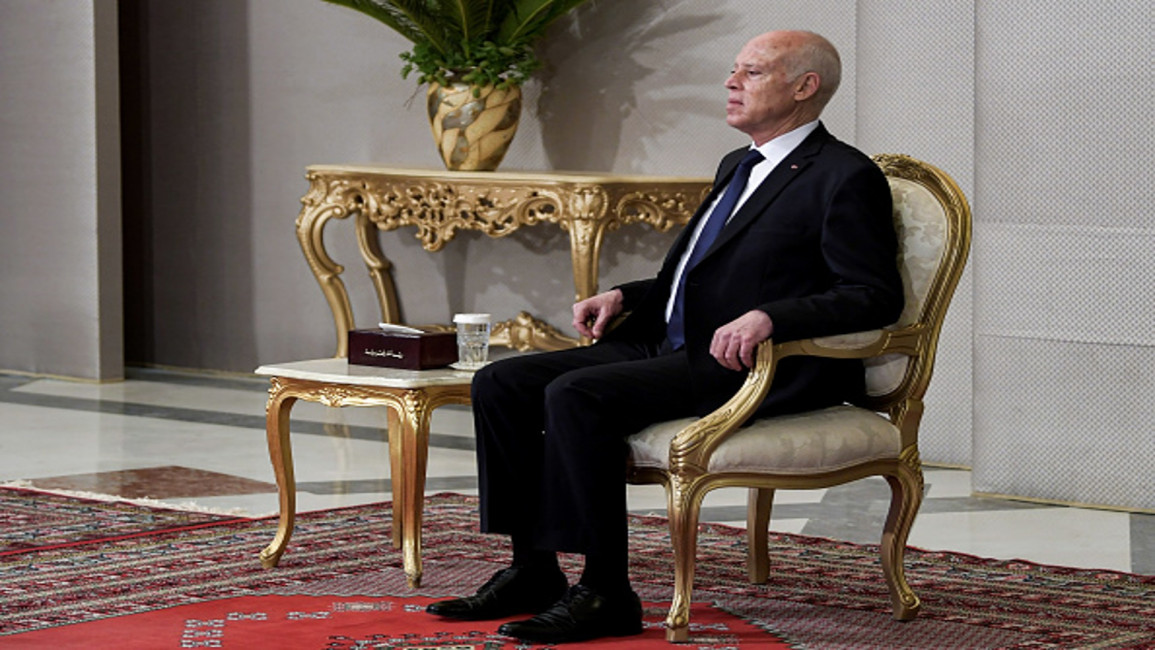Tunisia's president 'patronises' journalists in media rights meeting
Tunisia's President Kais Saied rebuffed questions by a group of international journalists after they were invited to a meeting at the Carthage Palace for a talk on civil liberties.
The meeting appeared intended to reassure media and Tunisians that hard-fought freedoms in Tunisia following the Arab Spring movements would remain intact, despite the president's "power grab" last week.
"Welcome to Tunisia, where freedom of speech is protected with no interference in personal freedoms at all," he said in greeting to a group of The New York Times journalists.
The author of the report, Vivian Yee, said they had been "summoned" by the president five days after he fired the prime minister, suspended parliament, and took control of the country - actions seen by many as a "coup".
"I'd spent several days in the capital when, suddenly, I got the call to go with two other journalists working for The New York Times to see the president," Yee wrote. "I thought it might be my chance at an interview. As it turned out, we had been invited for a lecture."
I came to report on the potential collapse of Tunisia’s democracy and was briefly detained. Then I got a lecture on the U.S. Constitution from the president of Tunisia, who vowed to preserve press freedoms but didn’t allow me to ask a single question https://t.co/eMplkEAwSi
— Vivian Yee (@VivianHYee) August 1, 2021
Saied, a former law lecturer nicknamed "RoboCop" for his habit of speaking in rigid formal Arabic, held out a printout of the US constitution on which he had highlighted several passages.
"Just as American leaders like Abraham Lincoln had had to take extreme measures to preserve the system, he said, so must he," Yee wrote.
A colleague translating for Yee parts of the president's speech in French was told to stop. The meeting was being filmed by a government camera crew to be posted on Saied's Facebook page, "which was perhaps why it was important that we, the audience, be silent", Yee wrote.
When the reporters began asking questions, Saied replied: "This is not a press interview."
Yee and her colleagues had been out reporting on the streets of Tunis before receiving a call from the president's office. They were briefly arrested and held at a local station for questioning. With no prime minister's office to issue papers, the reporters were unable to apply for press accreditation.
"Though we had requested an interview with the president earlier in the week, it was only after Twitter and local political circles lit up with news of what was being called our 'arrest' that Mr. Saied's chief of protocol called me on Friday morning," Yee wrote. "Could we be at the palace in exactly one hour, dressed appropriately?"
An aide to Saied, in charge of protocol, gave Yee a pair of sandals too big for her after judging hers unsatisfactory. He also directed her posture, asking her to uncross her legs.
Meanwhile, Saied began his lecture on civil rights and freedoms by taking aim at the US.
"Maybe you saw from Washington how the blood was spilled," Saied said, in reference to the five people killed during the Capitol riot on 6 January, when a crowd of supporters of former President Donald Trump stormed the meeting place of the Congress.
Yee said Saied's "lecture" was ironic.
"A journalist from a country where democracy is under strain flying in to report on a threat to another country's democracy, only to be reminded by the very man who might be threatening it of the gap between American ideals and American reality," she said.



